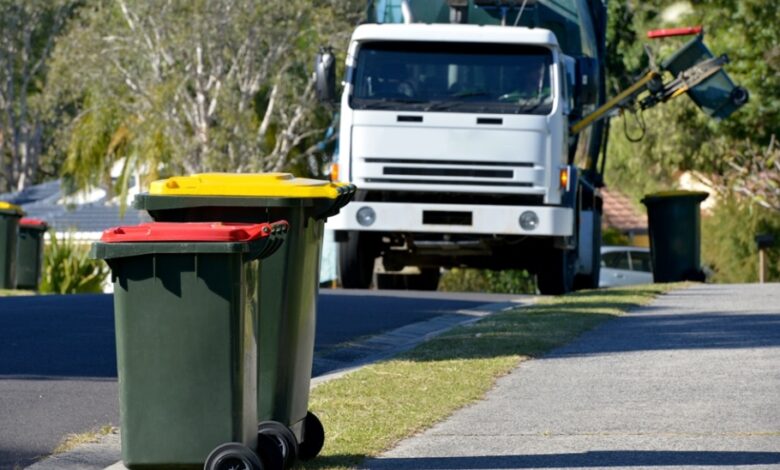8 Tips for a Successful Hard Rubbish Collection Experience

Handling hard rubbish collection is essential for maintaining a clean and organised living space and contributing to a sustainable environment. However, it can be a challenging task if not approached with proper planning and consideration. To ensure a successful hard rubbish collection experience, this article has compiled eight essential tips that cover everything from preparation to post-collection reflection. Let’s dive into these valuable tips to make your next hard rubbish disposal hassle-free and environmentally responsible.
1. Plan Ahead
Before the collection day arrives, take some time to plan for a smoother experience. Start by researching your local council’s collection policies and schedules. Please familiarise yourself with the types of items they accept and prohibit. Mark the collection day on your calendar and set timely reminders to ensure you don’t miss it.
To streamline the process, prepare and organise the items you wish to dispose of. Sort them into different waste types, such as metal, paper, plastics, and electronics. This step will save you time during the collection day and help ensure that recyclable and reusable items are not in landfills.
2. Sort and Separate
An efficient hard rubbish collection experience starts with proper sorting and separation. By organising your waste thoughtfully, you facilitate the collection process and contribute to recycling efforts and environmental Sustainability. Here are some tips for sorting and separating your hard rubbish like a pro:
- Categories by Material: Sort items based on their materials, such as plastics, metals, glass, and paper, to make recycling easier.
- Recyclables First: Prioritise separating recyclable items from general waste to reduce landfill impact.
- Identify Reusable Items: Set aside items in good condition that could be repurposed or donated.
- Handle Hazardous Waste Carefully: Recognise and dispose of hazardous materials and electronic waste responsibly.
- Disassemble Large Items: Disassemble bulky items to maximise space and enhance recycling potential.
3. Check Restricted Items
Avoid potential setbacks and fines by knowing the restricted items your local council won’t collect. Items such as hazardous waste, batteries, chemicals, and electronic waste usually have special disposal requirements due to their environmental risks. Research proper disposal methods for such items and take them to designated collection points to ensure they are handled safely and responsibly.
4. Size and Weight Limitations
Most hard rubbish collections have size and weight limitations. Check with your local council to understand the allowed dimensions and weights for the items you want to dispose of. If you have large items, consider breaking them into smaller pieces to meet these requirements. For oversized items that don’t fit into the regular collection, arrange a special pickup with your local waste management authority.
5. Safety Precautions
Safety should always be a top priority when it comes to hard rubbish collection. Proper handling and disposal of waste protect you and the environment. Here are safety precautions to ensure a successful rubbish collection experience:
- Protective Gear: Wear appropriate protective gear like gloves, closed-toe shoes, and eye protection to shield yourself from potential hazards.
- Handle with Care: Be cautious of sharp or hazardous materials, and handle them carefully to avoid injuries.
- Lifting Techniques: Use proper lifting techniques to prevent strain or injury when lifting heavy objects.
- Children and Pets: Keep children and pets from the collection area to avoid accidents.
- Hazardous Waste: Identify and dispose of hazardous waste separately according to regulations.
- Follow Guidelines: Adhere to local council guidelines for hard rubbish disposal to prevent fines and penalties.
- Emergency Kit: Keep a first aid kit and emergency contacts handy in case of any accidents.
- Remember, a safe rubbish collection protects you and others and contributes to a cleaner and greener environment.
6. Consider Sustainability
Take a sustainable approach to hard rubbish disposal by opting for eco-friendly methods whenever possible. Repurpose or upcycle items that can be given a new life. Consider repairing and refurbishing items instead of discarding them. By actually reducing waste and extending the lifespan of products, you contribute to a more sustainable future.
7. Engage the Community
Collaborate with your neighbours to make the hard rubbish collection a community effort. You can coordinate collection days and share resources like trailers or trucks to reduce individual trips to the landfill. Encourage responsible waste disposal practices by sharing tips and information with your community. You can make a bigger impact in creating a cleaner and greener neighbourhood.
8. Follow Up and Reflect
After the hard rubbish collection, confirm that all items were properly collected and disposed of according to regulations. Take note of any challenges faced during the process and evaluate your overall experience. Identify areas for improvement and consider how you can enhance your waste management practices in the future.
Conclusion
A successful hard rubbish collection experience requires careful planning, responsible sorting, and adherence to local regulations. By following these great eight tips, you can ensure a smooth and environmentally conscious disposal process. Embrace Sustainability, engage your community, and reflect on your actions to continually improve your waste management practices and contribute to a cleaner, healthier environment for all. Together, let’s work towards a more sustainable future.



